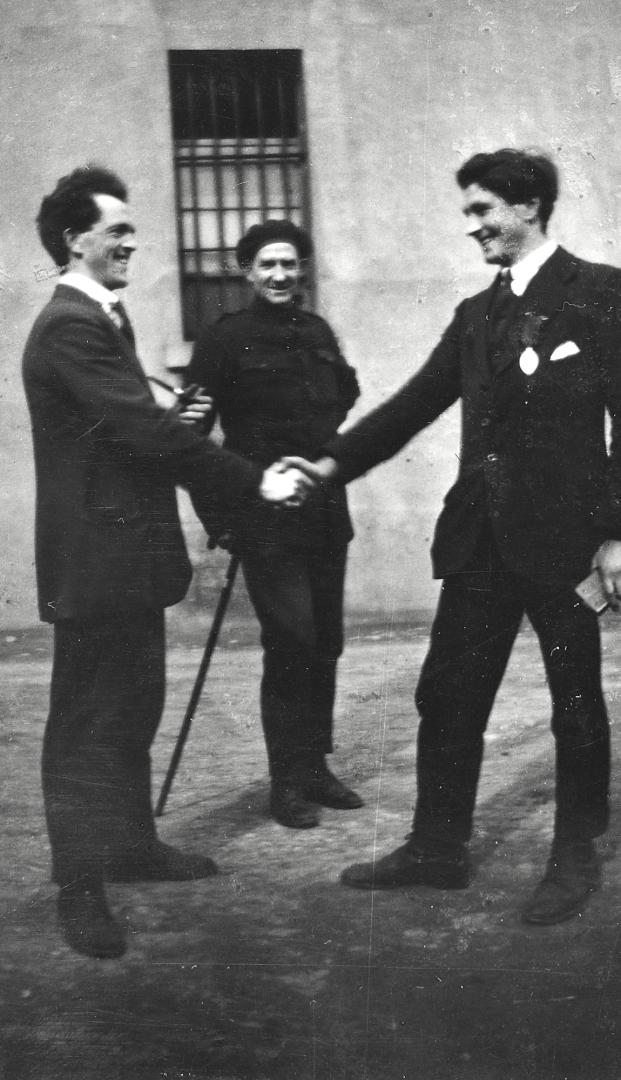
1898 - 1921
Summary
Name:
Thomas WhelanYears Active:
1919 - 1921Birth:
October 05, 1898Status:
ExecutedClass:
MurdererVictims:
1Method:
ShootingDeath:
March 14, 1921Nationality:
Ireland
1898 - 1921
Summary: Murderer
Name:
Thomas WhelanStatus:
ExecutedVictims:
1Method:
ShootingNationality:
IrelandBirth:
October 05, 1898Death:
March 14, 1921Years Active:
1919 - 1921Date Convicted:
February 1, 1921bio
Thomas Whelan was born on October 5, 1898, in Gortrummagh, near Clifden, County Galway, Ireland, to John Whelan, a farmer, and Bridget Price. He was the sixth of thirteen children, raised in a deeply Catholic and rural Irish family. He attended school at Beleek and Clifden National Schools, but by the age of fifteen, he left formal education to work full-time on his family's farm.
At 18 years old, Whelan left Galway for Dublin, seeking better opportunities. There, he found employment as a railway worker, likely drawn by the steady income and the growing movement for Irish independence in the city. Settling in Barrow Street, Ringsend, he worked at a train depot and became politically active. Whelan joined the Irish Volunteers, specifically ‘A’ Company, 3rd Battalion, Dublin Brigade, at a time when tensions between Irish nationalists and British forces were rapidly escalating into armed conflict.
Despite his youth, Whelan was committed to the Republican cause. His quiet demeanor, wavy hair, and gentle personality left a lasting impression on fellow activists, including author and revolutionary Ernie O’Malley, who would later recall him as soft-spoken, brown-eyed, and possessing a quiet, steady smile.
murder story
Thomas Whelan was arrested on November 23, 1920, accused of participating in the assassination of Captain G.T. Baggallay, a British Army officer and court prosecutor involved in sentencing several Irish Volunteers to death. The shooting occurred during Bloody Sunday, a day marked by coordinated attacks on British intelligence officers by the IRA in retaliation for the brutal suppression of Irish nationalists.
Whelan was charged with Baggallay’s murder and brought before a British military court-martial. He was defended by Michael Noyk, who argued passionately that Whelan was innocent. Several eyewitnesses claimed to have seen Whelan attending Mass at the exact time the shooting took place. However, the court dismissed this alibi, citing the witnesses’ Catholic faith as a potential source of bias. The prosecution instead relied heavily on the testimony of a British army officer who claimed Whelan was present at the scene and had covered him with a revolver during the raid. Another soldier stated he saw Whelan attempting to start a motorcycle near the site after the shots were fired.
On February 1, 1921, despite the questionable nature of the evidence, Whelan was convicted and sentenced to death by hanging. In the weeks leading up to his execution, he remained composed, receiving visits from loved ones and fellow nationalists. His mother, Bridget Whelan, came to Mountjoy Prison the day before the execution and later remarked that her son seemed “so happy and cheerful you would almost imagine he was going to see a football match.”

On the morning of March 14, 1921, Whelan was one of six men hanged at Mountjoy Prison, the first of three executions that day, which were carried out in pairs. As the executions took place, over 40,000 people gathered in silent protest outside the prison walls, holding candles and reciting prayers.
His final words were a message to his comrades: "Give the boys my love. Tell them to follow on and never surrender. Tell them I am proud to die for Ireland."